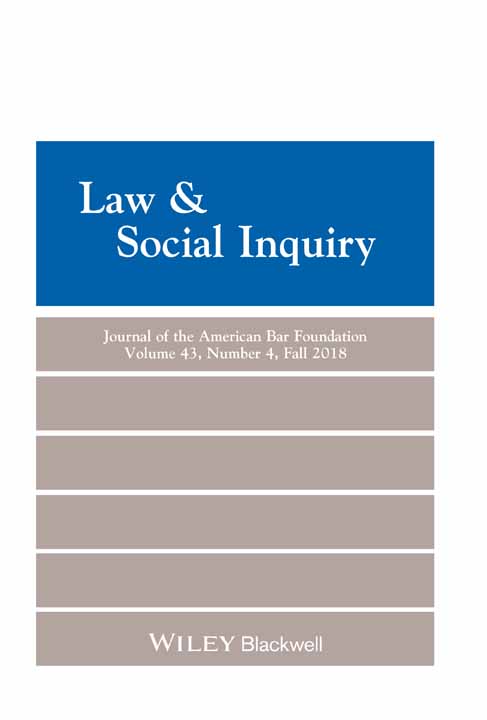Causes of Career-relevant Interest Changes Among First-Year Law Students: Some Research Data
This article is the third report from the Impact of Pedagogic Techniques in Law project, one of the studies in the American Bar Foundation research program in legal education under the codirection of Felice J. Levine and Spencer L. Kimball. The program is advised by the ABA Special Committee for the Study of Legal Education (Ronald J. Foulis, chairman, Barbara Schwartz Bromberg, Thomas B. Curtis, Patrick D. Kelly, R. W. Nahstoll, Christopher Otorowski, Edward F. Rodriguez, Jr., and David C. Stoup).
A number of people have heard or read reports of the research described in this paper. Their suggestions are incorporated throughout and have aided in focusing the analyses onto issues of importance to legal educators and the legal profession generally. Major contributors to the research project have been Felice J. Levine, Spencer L. Kimball, Donald R. Brown (Psychology Department, University of Michigan), Mark Granfors, and Tod Sloan (research assistants on this project), the ABA Special Committee for the Study of Legal Education, and colleagues at the Foundation. Once again the author would like to thank the faculty, staff, and students of the J. Reuben Clark Law School at Brigham Young University for their marvelous cooperation in the project. The author would also like to thank Louise Kaegi, of the Foundation's Publications Department, for her editorial assistance.
Abstract
The third report in a study of career-relevant changes in interests, attitudes, and personality characteristics among first-year law students at Brigham Young University, this article examines the impacts of five kinds of possible causes of interest changes. The author elaborates what it means to say that a career-relevant interest has “changed” in light of changes due in part to both reconceptions of the content of law and of the demands and rewards of various work settings and to changes in the students' conceptions of themselves which carry with them changes in career interests.




